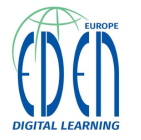I have been reflecting on the fact that many of those who work in the field of distance learning are taking time at present to stand back and ask about the ethical bases of their and their organisations’ practice. Distance learning had a stance in its first modern phase – say the 1970s and 1980s – of challenging power.
Despite the fact that the major institutions at that time were the state established open universities in one form or another, the ethos was of challenging a conventional higher education system that was inadequate in its capacity and in its thinking to want to expand opportunity to those who were marginalised and excluded, and hostile to innovation in technology-supported learning. These institutions were accompanied in this endeavour by some NGOs and a wider range of institutions that took on the dual mode identity and practice, as for example in Australia. At the heart of the endeavour from an ethical point of view lay what we would now call social justice.
This term has a wide variety of meanings from the soft end of simply opening up opportunity (and that is no bad thing of course), to more radical notions of challenging power structures and elites. At its heart lies the notion that all in our societies are full citizens, with the same needs, rights, expectations and obligations. To attempt to steer by the core notion of social justice demands the explicit making account of how distance learning seeks to include the excluded, challenge the elites, and seek through the ‘open’ concept that is so often associated with distance learning to regard all of society as full citizens.
Core questions for consideration in this context would include:
- how do we ensure that the needs for organisational survival in a competitive landscape do not obscure but can be brought to serve the ethos of social justice?
- how do we respond to the need for curriculum to serve a population that has to find a sustainable livelihood in a competitive world?
- how do we place sustainability and environmental concern at the heart of our educational practices?
- how do we examine what openness and inclusion means in our varied societies, and how do we articulate explicitly our understandings of this?
Distance and e-learning through its flexibility and its commitment to innovation has the potential to engage with these core ethical issues, which revolve at heart around the issues of sustainable livelihoods for us all.




